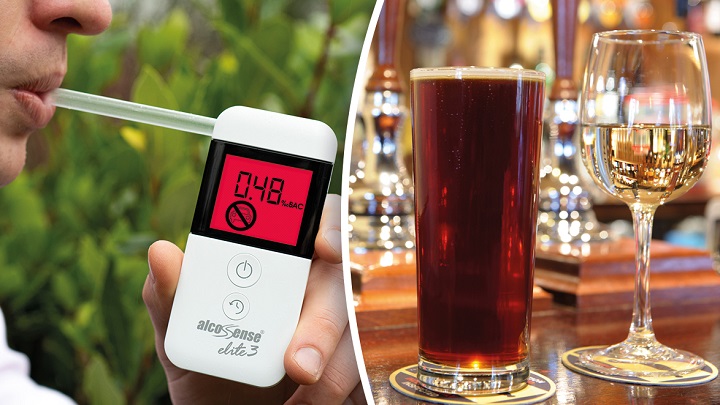
With the Olympics starting in Paris on Friday, UK visitors to France are set for record levels – but motorists are being warned they are 20 times more likely to be breathalysed than in the UK.
French police test over 100 drivers per 1,000 population, compared to just five per 1,000 in Britain. The drink drive limit across Europe is also much lower than England and Wales, making it easier to flout the law both the same day, and the morning after.
According to figures from the French embassy in London, arrivals in France from the UK are expected to hit 13.4 million this year – up nearly a million on 2023 and the highest for a decade.
The influx is expected because the UK has purchased the biggest number of tickets for the Olympics outside of France.
The English and Welsh drink drive limit is 80mg of alcohol per 100mL of blood – the highest in Europe. In France and most other European countries, it’s 50mg.
For drivers with less than three years’ experience, it’s even lower in France at 20mg – one quarter of the English limit.
The French police have the right to conduct random breath tests, unlike the UK, and will always breathalyse after a collision or if a serious offence has been committed.
Therefore, Alcosense is encouraging drivers to carry a disposable breathalyser.
Hunter Abbott, MD of AlcoSense Laboratories, said: “Carrying a disposable breathalyser certified to French regulations in your car is a highly recommended part of your safety kit when motoring in France.
“With such a high propensity of breath alcohol tests in France combined with a significantly lower limit than England, it takes the guesswork out of the morning after a few glasses of wine.”
There were 840 road deaths in France attributable to alcohol in 2021. This compares to 260 in the UK.
When driving in France, motorists should also carry at least the following: one hi-viz jacket per passenger; driving licence and NI number; vehicle and travel insurance documents; vehicle log book (V5C certificate); warning triangle; and a first aid kit.
It is comforting to know that the French Police clearly place a high level of risk on Drink Driving with 100 persons in every 1000 tested compared to only 5 in the UK.It does go to show that the lack of dedicated Traffic cops in the UK is affecting our results.
The limit in France and most of Europe is the same as Scotland and the results there have shown it makes no difference, although the lower limit for new drivers is something the UK should look into for graduated driving licences.
Stephen Hughes, Derby
0